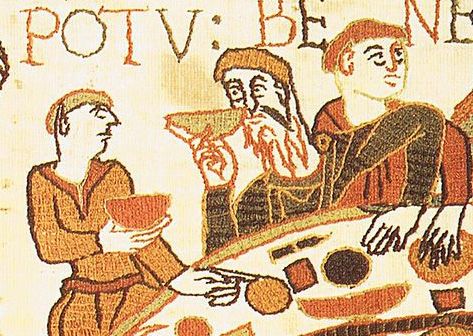It depends on the meaning of the word 'is'

A county judge can rule on a local ordinance and set the dictionary on fire. And also give the internet what it loves most: A simple-looking but unanswerable question to brawl about forever.
A judge in Indiana recently lit that match under sandwich, ruling that "tacos and burritos are Mexican-style sandwiches." Sparring about words sharpens your wits and reflexes. It's sport for the mind, and our minds need it. It's also fun. And at the end of it you think a little better.
Etymonline consulted.
TF: "I’m inclined to say yes. Especially if an open faced sandwich exists."
DH: "hmmm. But once you fold the taco ..."
TF: "That’s how it is a sandwich. The tortilla is the bread."
DH: "Sandwich implies clean-cut layers. Once you fold, you're in a different genus."
The board was set. That was almost a week ago. It was epic. The hot dogs came out pretty quickly and were embattled on both sides. I beat a retreat when she deployed the subs. Where I come from they're called hoagies; didn't see it coming.
But I rallied on the verb, where the image of "sandwiched" implies betweenity and excludes enfoldedness. Still, the split-roll sandwich had to be allowed on historical evidence.
On the most basic level TF looked at the sandwich's function — nutrition that can be eaten with one hand free, with a breadstuff providing the grip and preventing mess and also forming part of the sustenance. I saw sandwich as form — bread in discreet slices, stacked, with something in between.
[TF: I think in terms of Modernism, he does Palladian. In fairness, the original aristocratic gamblers were eating something sculpted according to 18th century ideas of classical shape; little crustless dainties carefully trimmed into perfect squares that looked as neat and pretty as they left your hands when you finished. That's why it became a Sandwich instead of mere meat-and-bread, which had been eaten for long before.]
In either case, half the problem of definition is, "what is excluded?" At some point, in order that language not melt to the mush that Orwell warned of, someone has to stand up and say to some perfectly good food preparation, "You, sir, are not a sandwich."
[TF: I draw the line at onigiri, myself. Same function, but rice is not bread. You could make a bread out of rice, however, by grinding it or mashing it. I'd entertain mochi as a sandwich.]
These diversions steer your mind toward noticing the difference between words and things. It turns fertile questions back on to you: how do you understand and explain equivalence and identity?
The "is" question is a synchronic definition: it tries to cast a net over a word in such an artful throw that it catches all that living mouths might mean when they speak it.
We do "was." Diachronic. Language is a river, definitions ripples in the currents. Reading etymologies is watching waterdrops run and merge and pause on a rainy windowpane. Etymonline can show you the history of the two words, with glances at the things in question and sidelights on the historical context. You decide whether that bears on the present.
A Word or Two
Etymology Entomology
June 17, 2024 at 4:05 pmIS A SANDWICH A TACO
May 22, 2024 at 5:18 pmIMMODEST DISPOSAL
May 05, 2024 at 6:25 pmChile con Frontation
April 17, 2024 at 10:07 pmDoug and Mr. Plinkett
February 19, 2024 at 3:51 pm
